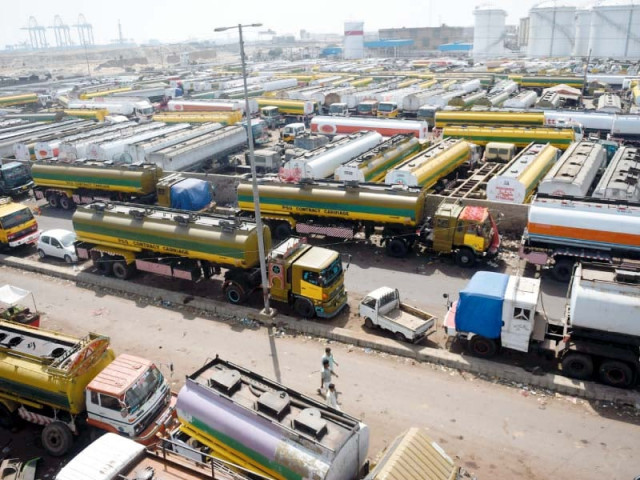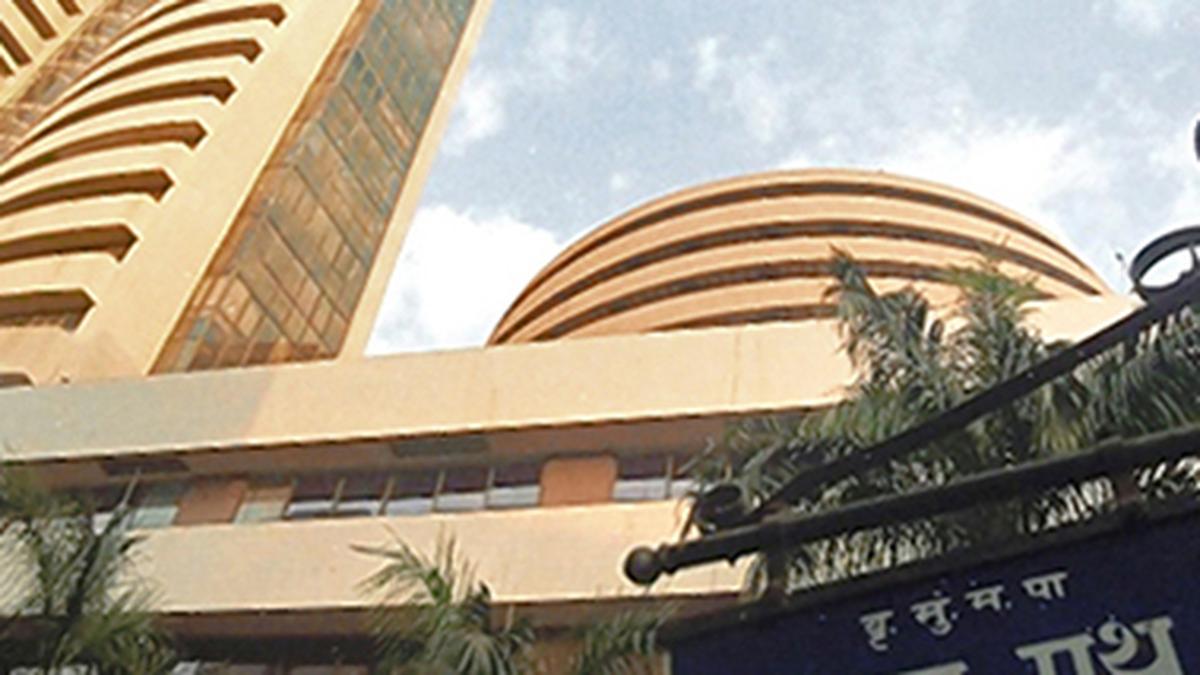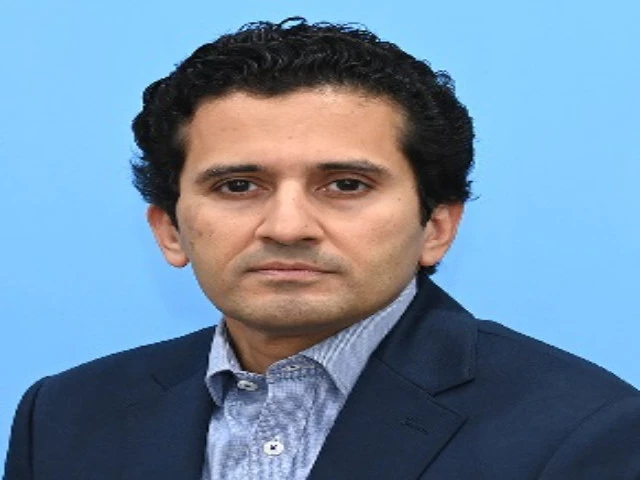OCAC says oil shipments stuck due to Sindh’s new 1.8% levy recently imposed on imported goods
Oil tankers parked at a terminal at a port in Karachi. PHOTO: AFP
Pakistan could face a countrywide fuel shortage after the enforcement of a new Sindh government tax delayed the clearance of oil shipments at Karachi Port.
According to the Oil Companies Advisory Council (OCAC), several petroleum cargoes are stuck at the port due to the Sindh Infrastructure Development Cess, a 1.8% levy recently imposed on imported goods.
The OCAC has written to Sindh Chief Minister Murad Ali Shah, warning that if the issue isn’t resolved quickly, fuel supplies across the country could grind to a halt.
Two Pakistan State Oil tankers — MT Islam 2 and MT Hanifa — are currently docked and awaiting customs clearance. Stocks at the Keamari oil terminal are running low, and without prompt clearance, the supply chain could break down.
“Only after customs clearance can the continuity of the petroleum supply chain across the country be ensured,” the OCAC said in its letter.
The council warned that more vessels — including Wafi Energy’s petroleum cargo and Parco’s crude oil shipment — are expected to arrive at Karachi Port on October 21, potentially worsening the situation if the stalemate continues.
Industry officials say the new cess could push fuel prices up by more than Rs3 per litre, further burdening consumers even though retail prices are government-regulated.
The OCAC added that the crisis comes at a particularly bad time, as the agriculture season is underway and farmers depend on a steady fuel supply.
Even if the issue is resolved soon, the council said it may take up to two weeks for normal supply operations to resume. It urged the Sindh government to act immediately to prevent the situation from escalating into a full-blown national fuel crisis.
Meanwhile, the Oil Marketing Association of Pakistan (OMAP) also warned that the 1.85% Infrastructure Development Cess and mandatory bank guarantee requirement could disrupt petroleum imports across the country.
In a letter addressed to Energy Minister Ali Pervez Malik, OMAP Chairman Tariq Wazir Ali urged the federal government to immediately intervene and engage with the Sindh government to avert a looming fuel crisis.
Ali cautioned that the Sindh government’s new policy poses a “serious threat” to the national petroleum supply chain. He warned that unless the bank guarantee condition is withdrawn, Pakistan’s oil imports could face severe disruptions, potentially leading to a shortage of petrol and diesel nationwide.
He added that oil marketing companies are already under heavy financial pressure due to delays in sales tax refunds, foreign exchange losses, and low profit margins.
The newly introduced bank guarantee requirement, he said, could freeze working capital and make it impossible for companies to continue importing oil. The association warned that the enforcement of the cess could delay oil imports at Karachi Port, leading to potential fuel pump dry-outs across the country.
OMAP appealed to the energy minister to hold immediate discussions with the Sindh government and the Federal Board of Revenue to ensure that petroleum imports continue smoothly and the nation is spared from a fuel crisis.
“This issue requires urgent attention,” Ali emphasised. “If timely action is not taken, the country could face a severe shortage of fuel, impacting both the economy and industry,” he added.
Representing all registered oil marketing companies in Pakistan, OMAP reaffirmed its commitment to cooperating with the government but warned that without swift federal intervention, the situation could escalate into a full-blown energy crisis.
The Sindh government has yet to respond to the request for comment.






